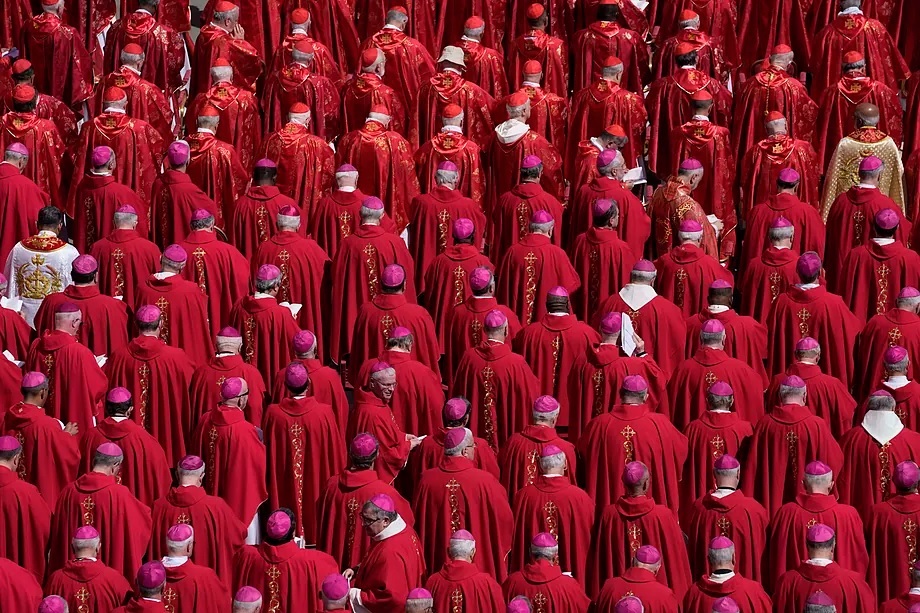The novendiales (nine days of mourning) is traditionally known as the transition period until the election of a new Pope. Nine masses in honor of the deceased pontiff, including the one held at the Saturday funeral, will mark the countdown until the last one scheduled for May 4, which will give way to the conclave, possibly the day after.
Cardinal Pietro Parolin, Secretary of State of the Vatican and one of the favorites for the succession of Francis, will officiate the first mass on Sunday at 10:30 a.m. in St. Peter's Basilica. The ceremony will be attended by a large number of young people gathered for the 2025 Jubilee. The canonization of Carlo Acutis, known as the "God's influencer," was also scheduled for April 27, but has been suspended until further notice due to the Pope's death.
On Sunday, starting at seven in the morning and for twelve hours, the basilica of Santa Maria Maggiore will also be open to the public, where thousands of faithful are expected to visit the tomb of Franciscus, as inscribed on the stone slab from Liguria since Saturday. At four in the afternoon, the arrival of the 135 cardinals (under 80 years old) who will participate in the conclave is expected, paying tribute to the pontiff.
The General Congregation of Cardinals will meet again on Monday morning at the New Synod Hall of the Vatican. During the transition period, the general congregation fills the power vacuum, with Cardinal Camerlengo Kevin Joseph Farrell temporarily assuming the helm of the Church.
The schedule of the novendiales will continue on Monday with a new mass at five in the afternoon, officiated by Cardinal Baldassate Reina, the general vicar of His Holiness for the diocese of Rome. On Tuesday, at the same time, there will be another liturgy presided over by Cardinal Mauro Gambetti, archpriest of St. Peter's Basilica.
Leonardo Sandri, vice-dean of the College of Cardinals, will preside over the evening mass on Wednesday, and on Thursday, the Argentine Victor Manuel Tucho Fernández, Prefect of the Congregation for the Doctrine of the Faith, will take over.
On the seventh day, Friday, it will be the turn of Cardinal Claudio Gugertti, Prefect of the Congregation for the Oriental Churches. The Spanish Cardinal Ángel Fernández Artime (Luanco, 1960) will officiate the penultimate mass as the pro-prefect of the Congregation for Institutes of Consecrated Life and Societies of Apostolic Life.
The last ceremony will be presided over by the Cardinal of Moroccan origin Dominique Mamberti, Protodeacon of the College of Cardinals, who will be responsible for proclaiming "Habemus Papam" when the successor of Francis is elected, and will also bestow the pallium during the inaugural mass of his pontificate.
The conclave traditionally takes place between fifteen and twenty days after the Pope's death. The motto "Extra omnes" will be strictly applied to cardinals over 80 years old, excluded from the new pontiff's election process. The elector cardinals will be completely isolated from the outside world and deprived of their mobile phones and any other devices to communicate with the outside world during the process.
There will be a maximum of four daily votes, two in the morning and two in the afternoon, and two smoke signals (one at noon and one around seven in the evening) which will be black until one of the candidates surpasses the two-thirds threshold of votes, finally announced with the symbolic white smoke.
According to the voting rules promulgated by John Paul II in 1996 and modified by Benedict XVI in 2004, if 33 or 34 votes are reached without a result, a final vote will be held between the two most voted candidates, although a two-thirds majority will still be required. Francis, the Pope who came from the end of the world, was elected on the fifth ballot on the second day in 2013.
